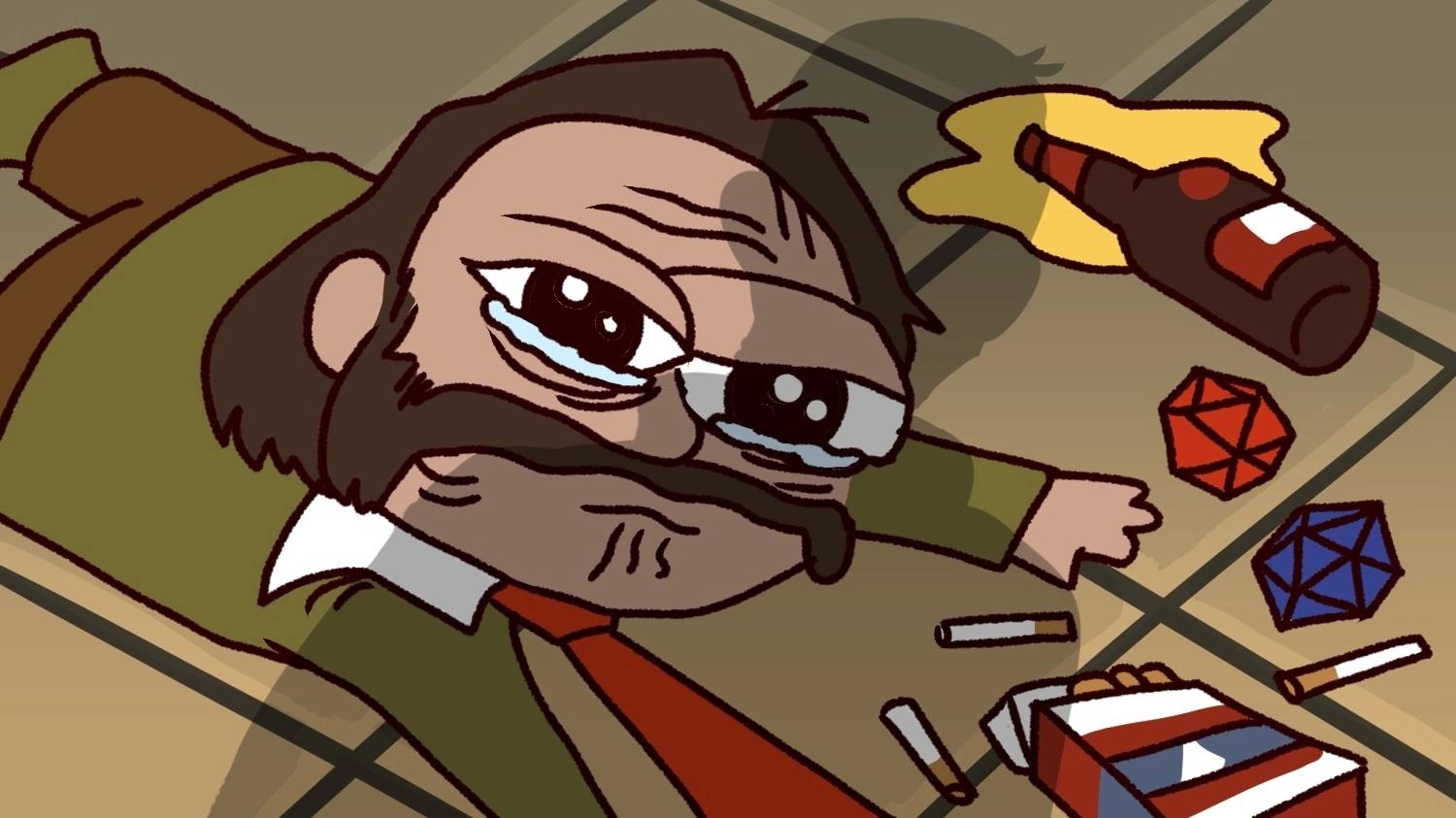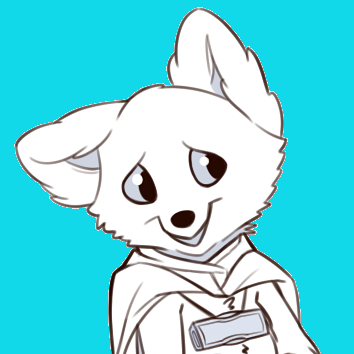ask people questions about their aesthetical decisions in a way that expresses interest. example:
“I like your shirt, where did you get it?” “What kind of book are you reading?” “How old were you when you started (x hobby)?”
basically, be curious. and avoid people who hate curiosity. curiosity is your best framework for interacting with a world that is usually uninterested in understanding you. be cautious about using “why” questions, NT’s interpret those as interrogation and feel like they’re being made to justify themselves.
I stumbled into it by accident. A game I played was running a Twitch promotion so I started watching this random furry vtuber; she was hilarious so I ended up coming back for more streams and eventually joined her Discord server. Now it’s 4 years later and I have a ton of autistic gay animal friends (several irl), a much healthier outlook on life, and a prescription for estradiol. It’s great.
If you want more general advice, I suggest figuring out what flavor of autism you have and then looking for ways to interact with people who share that interest. It seems you don’t have the gaming autism but maybe there’s a way to connect with people who like the things that you are into.
There are autism flavors? How do I find mine?
You lick all of them. The ones that taste fantastic are yours. In all seriousness you can probs google that and find many different answers. From what I experienced:
It can be really any topic that comes easy to you. Where you can talk lots about to other people you like (infodumping)
The weirdest one I personally encountered was pleistocene autism. They knew everything there is to know about that era. Here are a few others, maybe You find yourself in them. Infrastructure Autism (Ships, Trains, Planes, Cars). Math Autism. Google Paul Erdos for example. Music Autism (commonly Loud, overwhelming (Metal) or very quiet asmr type music (Billie Eilish) ). People autism (how and why they act the way they do). Just Vibing in the Countryside Autism. Gardening Autism. Pet collecting autism (not adviseable, seek help) Maybe you can see a pattern.
I’ve just been thinking of those things as hobbies. Now excuse me while I listen to some fast paced ASMR and do the daily Octordle puzzle, in an attempt to decompress after work.
Decompression after work? Witchcraft!
I know. I’m probably supposed to ride around town in my truck firing guns into the air
Switching to seriousness: I inherited the Autism from my mothers side, and she was soooo into guns. Always was much more open and relaxed and funny on shooting days. She found many friends shooting and fencing.
I never was into that, these things scare me. But to each their own.
Hi, I’m named after a Pleistocene-era geographical feature. Never met anyone who had that era as their autism flavor, though. I don’t even really have it myself; geology was a special interest of mine as a kid and I like learning about how different Earth was at different times in the past, but it was never focused on any specific time period. The Pleistocene just happened to be when the glaciers sculpted the land I live in.
That’s awesome!
Thought this was Ask Lemmy for a second. Autism? That’s harder. I haven’t had much luck myself. But where I have:
-
At work, be good at what you do. If you lean into learning/collecting information, you should be able to turn that into expertise, and while you may not be the best at expressing or teaching that knowledge, you can use it to help others, and that will get you respect from the right ones. I’ve made a couple friends at work just by being willing to share what I know and help others. Unfortunately some of the wrong ones will see it as weakness, and you know more often than not it’s the wrong ones in positions of power.
-
Outside of work, find something you enjoy and join a club for it. A good one is D&D. While previous editions involved a lot of math and/or plastic figurines that can get expensive, the current, fifth edition is strictly pen, paper, and dice. You can get character sheet apps and dice rolling apps, and despite the “three core rule books” being $50 each, firstly a player only “needs” the Player’s Handbook; secondly, the books are more like $20 on Amazon (the publisher sells them for about $15-20 but the MSRP is $50 to allow game stores to make more money — Amazon doesn’t care about that, they just apply their traditional rate to what they pay); thirdly, you don’t even need the PHB, the free standard rules are fine, they just include fewer options; fourth, PDFs of all the books are not hard to find online (or you can just ask to look at someone else’s; they’re nice but D&D people tend to share). For dice rolling apps, some are free and some are paid, or you can just ask Google or Siri to give you a number between 1 and 20. Or 1 and whatever. It’s the same thing, just less satisfying than throwing a dice. Anyway, friends tend to get made at D&D groups.
Disclaimer: I’ve never been diagnosed with ASD. My generation, they just told us to go outside and play. Younger generations who have been diagnosed, I’ve had several family members tell me I was the same way. I don’t know if I’m on the spectrum or not, but “it’s likely I am.” Should a guy in his mid 40s pursue a diagnosis? If so, for what? If I’m on the spectrum, I’m on the edge of it.
I am not someone with autism, however, it might be a good idea to look into a diagnosis as insurance companies might cover additional expenses associated with your illness with a doctors note/prescription.
I have a food allergy, celiacs, and with a doctors note, insurance companies will cover the “difference” in cost between GF and non-GF items. It’s a hassle so I usually don’t do this, but it’s an option.
If there are things you need to aid your autism, you might be able to get insurance to cover.
Additionally, the insurance company could cover therapy or coaching to assist you with coming up with ways to handle situations.
Of course, since you are in your 40s, you probably have a lot of this figured out, but can’t hurt to explore additional techniques to help you.
Work friends aren’t the issue for me. I do fine in that regard, the problem is that I work from home. I’m interested in finding non-work friends that I could see in real life instead of on MS Teams. The other challenge for me personally is that I live in a very sparsely populated area.
So your best bet is online, especially if travel is a concern or challenge, depending on where your nearest game store is and the time and effort it would take to get there.
Fortunately there are games held online. But meeting people online presents its own challenges, such as whether you can trust someone behind a screen. Of course, for some on the spectrum, this can be an advantage, you can be your true self and, while you risk greater conflict, you also risk deeper engagement with like-minded individuals.
And D&D is really for everyone. Not everyone is a born adventurer. You can play a bard who joins a party and inspires them with music but they don’t fight directly. Druids and monks do some fighting but they’re more into setting the stage. There are probably ways to play where you do not do any combat yourself (like the bard). The point is to put yourself out there in all your weird glory and find people who think that’s cool and who think you’re cool. So you read up on all the character races and classes and pick the one that sounds coolest to you, and you find a group that wants someone with the background/skills you’ve chosen. And then hopefully you vibe with the group.
It might have to be gaming, even though I have very little interest. There is in fact a gaming place not too far away.
Well, on one hand, gaming isn’t for everyone, so if it’s not for you, it’s not for you.
That being said, most D&D groups are pretty inclusive, and it’s typically welcoming to all.
One of the best games I ever played involved a six year old. She did not want to play, she just wanted to be included in the group. So she volunteered to do the dice rolling and the “secretary work” (keeping track of player/monster health). We looked over her work, but she did not make mistakes. We were allowed to focus on the story and she handled the dice and paperwork. Eventually she did want a character, so we made her one. That was over 30 years ago and I haven’t forgotten that game. I hope she hasn’t either.
-
One approach for finding people who might become friends is to join in with some local niche communities that are likely to be more inclusive of ND in an intentional way, such as polyamorous or kink groups. You might be surprised at what you discover about your own interests, but also even if you aren’t kinky or polyamorous, those communities tend to be more welcoming to everyone who is open minded regardless of whether you share their labels.
Lots of overlap with autism and trans and non binary people too, my local queer space is awesome for this.
board game cafes
I might have to bite the bullet on this one. I have very little interest in board games, but this one of the only social avenues that exist near where I live.
board games have experienced a renaissance so they’re no longer the sort of singular experience that we had with Life, Monopoly, Sorry, etc. growing up
it’s very likely you’ll be able to find a genre that interests you. but if not that’s also fine! board game geeks definitely tend to have a multitude of hobbies so if you make some board game friends they’ll be more than happy to share other experiences with you
Join a meetup group if they have them in your area. Or just join any local club, recreational sport teams, ya di ya di. Eventually you find some people and get along. Helps to be around people with similar interests.







